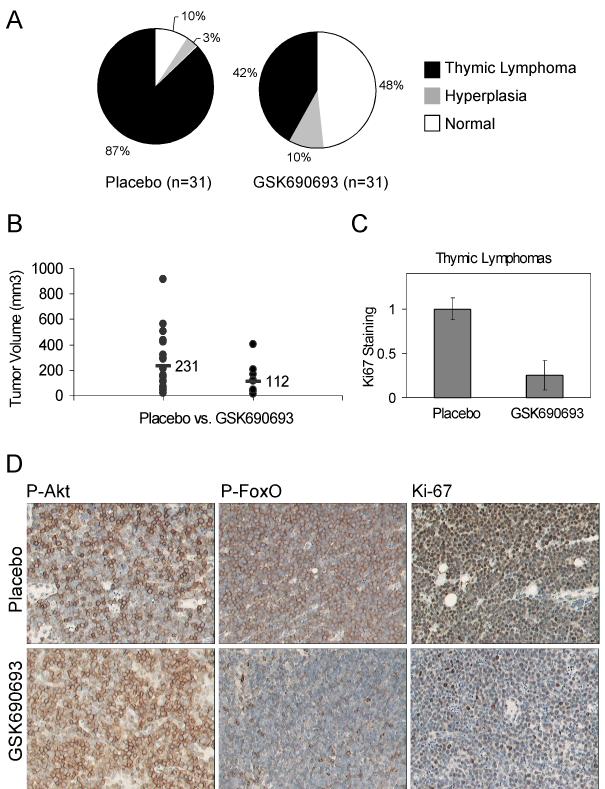Fig. 1. GSK690693 delays thymic tumor development in Lck-MyrAkt2 mice.
A, Pie charts depicting the percentage of mice that retained normal health (10% in placebo vs. 48% in treated group) or that developed hyperplasia or thymic lymphoma (90% in placebo vs. 52% in the treated group). B, Tumors that developed in GSK690693-treated mice were diminished in size (112 mm3) compared to those that developed in the placebo group (231 mm3). Student T test, p=0.026. C, Bar graph representing a significant difference between Ki-67 staining in placebo and GSK690693 mice (T-test, p=0.001) The number of positively staining tumor cells from 5 fields of 5 placebo- and 5 GSK690693-treated mice were scored using a 40x objective (0.075 mm2 field), and values were normalized relative to staining in placebo mice. Error bars represent standard error. D, Immunohistochemical staining of thymic lymphomas arising in Lck-MyrAkt2 transgenic mice. Pictures were taken with a 20x objective. P-Akt staining was strongly localized to the cytoplasm and plasma membrane (indicative of MyrAkt2 expression) in tumors from placebo-treated mice. P-Akt staining was relatively unchanged in GSK690693-treated mice. P-FoxO1/3 generally exhibited cytoplasmic staining of ++ to + in placebo treated mice and + to +/− in GSK690693-treated mice, with staining in the latter sometimes nuclear.

